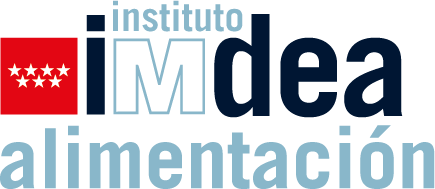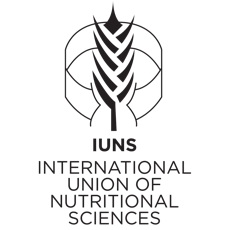LIVE ONLINE COURSE - Gastro-omics and Precision Nutrition
Description
This Summer Course will be face to face and you can also register in the live online in it, through the Zoom video conferencing platform of the Summer Courses. If you register in this Course you will participate in live online.
If you want to register in the face to face course, please click on FACE TO FACE to access the Course file.
Precision nutrition is an emerging health approach, which takes into consideration the genetic information of an individual, as well as age, gender, phenotype, medical history and personal physiopathological status and associated lifestyle factors in relation to nutrition and healthy outcomes . Advances in the "omics" sciences are contributing to better understandof the interactions between environmental factors and genetic variants (genomics), or patterns of gene expression (transcriptomics) as well as changes in the concentration of metabolites (metabolomics) and the composition of the gut microbiota (metagenomics) that are involved in the development of chronic diseases including obesity, and the way these relationships can imply therapeutic approaches. Indeed, the scientific advances in the different "omics" areas are enabling the design of customized strategies on precision nutrition for health maintenance as well as for the prevention and treatment of metabolic diseases. This course involves the consideration of newer progresses concerning personalized responses to dietary pattewrns
Objectives
Understand the basis of interpersonal gastro-intestinal and metabolism differential responses as affected by own nutrition and the genes of the individual
Screen of the possibilities of omics technologies on precision nutrition as well as the role of specific nutrients and precision foods
Precision strategies in obesity/diabetes, Cardiovasciular disease and cancer management
Activity directed to
- University student
- Professionals
- All public
Program
20-08-2020
Registration and material distribution
Presentation by the Director of the activity
- J. Alfredo Martínez | IUNS/UNAV-IMDEA - Presidente/Investigador
- Santiago Navas Carretero | Universidad de Navarra - Investigador
“Personalized Nutrition“
- Lidia Daimiel Ruiz | IMDEA-Alimentación - nvestigadora
“Obesomics“
- J. Alfredo Martínez | IUNS/UNAV-IMDEA - Presidente/director
Break
“Role of fatty acids in Personalized Nutrition (vía Zoom presentation) “
- Francesco Visioli | University of Padova - Researcher
“Personalised Sodium Reduction (vía Zoom presentation) “
- Ana San Gabriel Alcolea | Ajinomoto - Associate General Manager
- Hisayuki Uneyama | Ajinomoto
“Precision Nutrition (presential and vía Zoom participation)“
- Jose María Ordovás | IUNS/UNAV-IMDEA - Presidente/director
- Martin Kohlmeier | Nutrition Research Institute - Researcher
- Josep Antoni Tur Marí | Universitat de les Illes Balears - Catedrático de fisiología
“Sugars sensing and food intake“
- Santiago Navas Carretero | Investigador - Investigador
“Alimentación de Precisión en la salud y en la enfermedad (presential and vía Zoom participation)“
- J. Alfredo Martínez | IUNS/IMDEA - Presidente/Investigador
- Santiago Navas Carretero | Universidad de Navarra - Investigador
- Alberto Diaz-Ruiz Ruiz | IMDEA
- Jon Basterretxea Aranzabal | BCC Innovation, Centro Tecnológico en Gastronomía (BCC) - Cocinero investigador
21-08-2020
“Genetically informed Nutrition“
- Rodrigo San Cristóbal Blanco | IMDEA-Food - Researcher
“Microbiota in Precision Nutrition“
- Fermín Milagro Yoldi | UNAV - Investigador
Break
“Metabolomics for Precision Nutrition in diabetes and cardiovascular diseases“
- Miguel Angel Martínez González | University of Navarra - Professor of preventive medicine
“Precision Nutrition in cancer (vía Zoom presentation) “
- Ana Ramirez de Molina | IMDEA-Food - Deputy Director
Directors

J. Alfredo Martínez
IMDEA Alimentación, Universidad de Valladolid y RINN22
Doctor in Nutrition, as well as a pharmacist and medical degree. He has been Professor of Nutrition at the University of Navarra and currently at the University of Valladolid. He is director of the Precision Nutrition Program at IMDEA Alimentación and has participated in several nutritional trials (12 projects) of reference in the EU, such as DIOGENES, SEAFOODplus, NUGENOB, FOOD4ME, STOP, PREVIEW and SWEET, and in national consortia such as PREDIMED and CIERobn, whose results and conceptual contributions have been published in the most relevant medical and scientific journals, such as NEJM, Lancet, Nature Endocrinology, BMJ, AJCN, Circulation, JAMA, Obesity Reviews, etc. , with more than 35,000 citations. He has supervised more than 90 doctoral theses and has published more than 950 articles in the areas of Obesity, Nutrition and Nutritional Epidemiology, including precision nutritional omics (Factor H > 115). He has been president of the International Union of Nutritional Sciences (IUNS) and has received several major awards, including the Hippocrates and Dupont awards.

Santiago navas Carretero
UNAV
Speakers

Jon Basterretxea Aranzabal
Lidia Daimiel Ruiz
IMDEA Food

Alberto Diaz-Ruiz Ruiz
IMDEA Food, Tenure-Track Position

Martin Kohlmeier

Miguel Angel Martínez González
Universidad de Navarra, Catedrático
Catedrático en la Facultad de Medicina de la Universidad de Navarra y catedrático visitante de la Universidad de Harvard. Epidemiólogo de enfermedades crónicas con más de 20 años de experiencia en la realización de estudios de nutrición, ensayos clínicos y determinantes genéticos de las enfermedades cardiovasculares. Es autor del libro de Bioestadística amigable (Elsevier, 2013). Ha sido Investigador Principal de diversos proyectos, en los que destaca el proyecto SUN (estudio prospectivo de cohorte dinámico con> 22.500) y el ensayo PREDIMED-1. Este último es el mayor ensayo de prevención primaria aleatorizado de enfermedad cardiovascular con una intervención nutricional realizado en Europa. El Prof. Martínez González es actualmente el investigador principal del “Advanced Research Grant” PREDIMED-PLUS, financiado por el Consejo Europeo de Investigación (evalúa el efecto cardiovascular de la dieta mediterránea con restricción energética combinada con actividad física y pérdida de peso).

J. Alfredo Martínez
IMDEA Alimentación, Universidad de Valladolid y RINN22
Doctor in Nutrition, as well as a pharmacist and medical degree. He has been Professor of Nutrition at the University of Navarra and currently at the University of Valladolid. He is director of the Precision Nutrition Program at IMDEA Alimentación and has participated in several nutritional trials (12 projects) of reference in the EU, such as DIOGENES, SEAFOODplus, NUGENOB, FOOD4ME, STOP, PREVIEW and SWEET, and in national consortia such as PREDIMED and CIERobn, whose results and conceptual contributions have been published in the most relevant medical and scientific journals, such as NEJM, Lancet, Nature Endocrinology, BMJ, AJCN, Circulation, JAMA, Obesity Reviews, etc. , with more than 35,000 citations. He has supervised more than 90 doctoral theses and has published more than 950 articles in the areas of Obesity, Nutrition and Nutritional Epidemiology, including precision nutritional omics (Factor H > 115). He has been president of the International Union of Nutritional Sciences (IUNS) and has received several major awards, including the Hippocrates and Dupont awards.

Fermín Milagro Yoldi
Universidad de Navarra
Fermín Milagro is a researcher at the Nutrition Research Center of the University of Navarra (where he leads the Biomarkers and Bioactive Compounds research line), and is part of the CIBERobn (Carlos III Health Institute). In recent years he has worked in different lines of research in relation to Nutrigenomics, Nutrigenetics, Epigenetics, Metabolomics and Metagenomics of Obesity and Insulin Resistance, with special emphasis on food-gene interaction, in the identification of new biomarkers through omics technologies (genetics, epigenetics, miRNAs, microbiota, metabolomics) and in the search for bioactive compounds with application in these pathologies. He carries out his research both in intervention studies in humans and in animal models and cell cultures. The main goal is the development of precision nutrition in the field of obesity and its comorbidities. He is the author of more than 200 scientific articles (H-factor = 40) and has participated in 26 research projects
Santiago Navas-Carretero holds a grade in pharmacy by the Universidad Complutense de Madrid (2002) and a PhD in Nutrition (2007) in the same University, with the honors of European Doctor. He started working in the University of Navarra in 2008, where he has developed his research since then. Currently he is researcher in the Center for Nutrition Research. He is the principal investigator in various research projects and contracts (Nutriprecisión, MedKids, ALINFA and CORALS), apart from taking part as researcher in numerous studies at regional, National and International Level, where his participation in the 7th Framework Programme and H2020 is demonstrated through Food4Me, PREVIEW and SWEET. In addition, ha has authored/co-authored more than 120 scientific research articles or book chapters.

Jose María Ordovás

Ana Ramirez de Molina
PhD in Biochemistry and Molecular Biology (Autonomous University of Madrid 2002, extraordinary award), Ana Ramírez de Molina has developed her scientific career in the relationship between metabolism, nutrition and cancer. She has worked at the Translational Oncology Unit at Hospital La Paz-UAM-CSIC, Royal Marsden Hospital in London, Memorial Sloan Kettering Cancer Center in New York, and she has been Director of R&D at TCD Pharma for 3 years. She is the author of more than 70 articles of impact in the area and several patents transferred to the industry. In 2010 she joined IMDEA Food, where she leads the Precision Nutrition Program in Cancer and the GENYAL platform in personalized nutrition and health, being the Deputy Director of the center since 2014. In 2002 she received the MSD Young Researchers Award, in 2017 the John Kidney International Award, and in 2016 the distinction of 8th March from the Community of Madrid as an outstanding woman in Science and Technology.

Rodrigo San Cristóbal Blanco
IMDEA Food Institute, Postdoctoral researcher Juan de la Cierva
Ana San Gabriel Alcolea
CURRICULUM VITAE 1. Personal Information: First Name: Ana Lat Name: SAN GABRIEL Date of Birth: April 7th, 1966 Place of Birth: Reus (TARRAGONA), Spain Languages: Native Spanish and Catalan, fluent English and advanced Japanese Permanent Address: 15-1, Kyobashi 1-Chome, Chuo-ku, Tokyo, Japan Academic Rank: • Degree: Doctor in Veterinary Medicine (Universidad Autónoma de Barcelona, Spain) 1989 • Master’s in science, Nutrition, The Pennsylvania State University, 1994 • Position: Associate General Manager, Science Communicator – Ajinomoto Co., Inc. • Work Phone Number: +81 80 2024 1510 • E-mail: ana_sangabriel@ajinomoto.com 2. Work experience: • Ministry of Agriculture Fellow, Pennsylvania State University (1990-1994) • European Fellow, University of Tokyo (1994-1996) • Corporate Researcher, Ajinomoto Co. (1997-2007) • Principal Investigator, Ajinomoto Co. (2007-2010) • Public Relations and Scientific Affairs Representative of non-profit Organization Umami Information Center (2010~) • Secretariat & Science Adviser of non-profit Organization International Glutamate Information Service, IGIS (2010~) • Science Communicator and Public Relations, Science Group Global Communications Dept. (2017~) 3. Achievements and Awards: • Scholarship from Ministry of Agriculture of Spain (1990-1994) • Science and Technology Fellowship Program from EU (1994-1996)

Josep Antoni Tur Marí
Degree and Doctor in Pharmacy by the University of Barcelona. Professor of Physiology, University of the Balearic Islands (UIB); Director of the Research Group on Community Nutrition and Oxidative Stress (NUCOX) at UIB, built-in CIBEROBN (Physiopathology of Obesity and Nutrition) of the Institute of Health Carlos III, and in Foundation of Health Research Institute of the Balearic Islands (IdISBa), Spain. Founder Academic of the Spanish Academy of Nutrition and Food Sciences, and Corresponding Academic of the Royal Academy of Pharmacy of Catalonia. Member of the Scientific Committee of the Spanish Agency of Consumption, Food Safety and Nutrition (2014-2019). Member of the Scientific Committee of the Food and Nutrition Secretariat, Spanish Council of Pharmaceutical Colleges. Supervisor of 26 doctoral theses. Member Editorial Board: Nutrients; Antioxidants; Nutrition Metabolism & Cardiovascular Diseases; Current Nutraceuticals.

Hisayuki Uneyama












